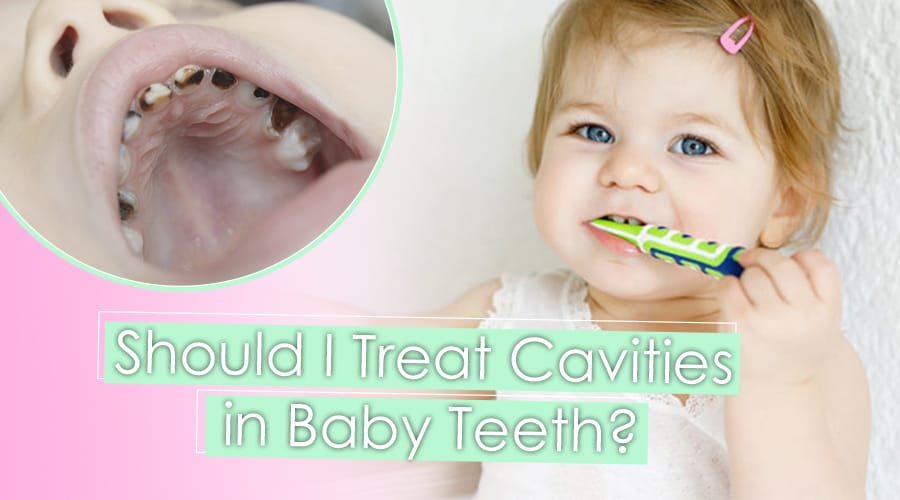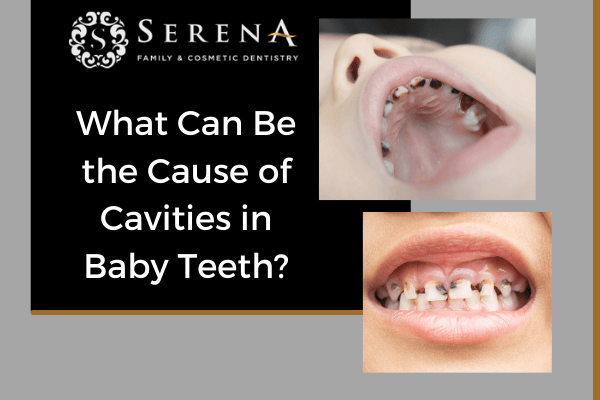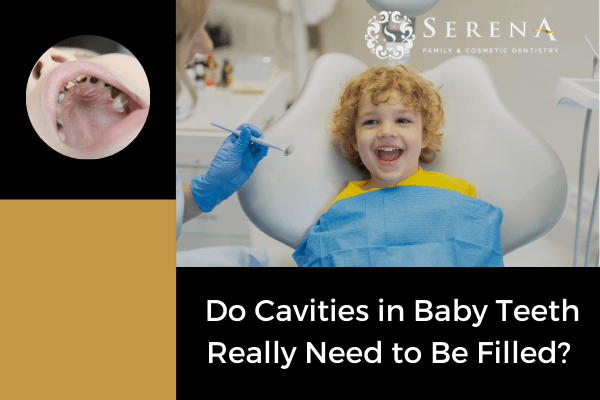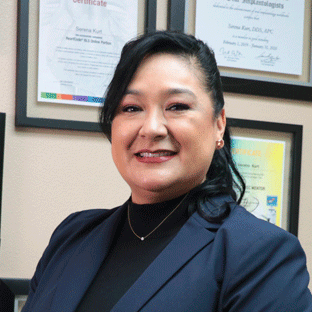It’s not easy to keep a child’s teeth sparkling and cavity-free, not when they want to eat candy for breakfast, lunch, and dinner. Besides, there are other things to pay attention to if you’re going to curb cavities in baby teeth.
As a parent, you always want to know what to do if something goes wrong with your child. Like Google, you want to know all the answers.
However, issues like cavities in baby teeth can be a little confusing. What should you do, or how did these cavities appear?
Well, you can find an experienced dentist in Clairemont at Serena Family & Cosmetic Dentistry, where we care about your family’s health. So let us uncover some details you need to know about this topic to help you understand and hopefully identify what course of action to take.
What Are Cavities in Baby Teeth?
The degradation or loss of tooth enamel is known as tooth decay. Enamel is the tooth’s rough outer shell. Cavities are caused by tooth decay and are also known as tiny holes that appear in the teeth.
What Can Be the Cause of Cavities in Baby Teeth?
Bacteria and other factors contribute to the development of cavities. It happens when sugars and starches remain on the teeth for a prolonged period.
Milk, soda, sweets, cake, fruit juices, cereals, and bread are examples of foods that make your child’s teeth more vulnerable to decay.
The bacteria that already live in the mouth alter these foods by producing acids. Plaque is a sticky material produced by bacteria, food, and saliva that adheres to the teeth.
Eventually, the acids formed by the bacteria corrode the tooth enamel over time, resulting in cavities.
Top 5 Symptoms of Cavities
Cavity symptoms differ from child to child. Often, cavities aren’t really followed by signs. Children most likely will be unaware that they have one before the dentist discovers it. However, these some of the indicators your child can manifest:
- Tooth pain when chewing or brushing.
- Pain under the gum line that surrounds a tooth or an area.
- Heightened sensitivity to temperature extremes, such as hot or cold beverages.
- Teeth with visible gaps, discolorations, or dark spots.
- Bad breath that won’t go away through brushing or mouthwash.
5 Things that Put Your Child at Risk of Getting Cavities
The following factors can put your child’s teeth at a more vulnerable position with cavities:
- Cavity-causing bacteria in high concentrations.
- A high-sugar, high-starch diet
- A fluoride-free or low-fluoride water source.
- Inadequate oral hygiene.
- Reduced saliva flow.
Do Cavities in Baby Teeth Really Need to Be Filled?
Primary teeth are just as important as permanent teeth and should be treated that way. If your child has cavities, you should visit your dentist as soon as possible to diagnose, get treatment, and prevent any complications.
Dental fillings are an effective solution for treating cavities and stopping them from getting worse or contributing to other dental issues.
Your dentist will fill your child’s cavity after scraping the contaminated material and cleaning the tooth.
The type of material used for the filling will depend on the severity and position of the decay. Whatever material is used will harden to protect the bite and tooth and provide structural support and improve the tooth’s appearance.
A filling will help your child avoid other potentially expensive dental issues, such as infection.
How Can You Prevent Your Child From Getting Cavities?
You can avoid cavities in the future simply by practicing good oral hygiene and eating a healthy diet. To protect your child from having any more cavities, you must do the following:
- Set a good example for others by adopting a proper dental procedure.
- Avoid using a bottle to bring a baby to sleep.
- Use a child’s toothbrush and fluoride toothpaste to brush your baby’s or toddler’s teeth.
- Safe meals should be given, and your baby or toddler should be taught to avoid sugary or acidic foods and beverages.
- Book an appointment with your Clairemont dentist once every six months.
You’ll be helping your kids immensely by educating them on oral care. Plus, if they start early with their oral care routine, you’ll save money, too!
Make sure to always seek professional help from your dentist. And feel free to read our other blogs on dental care so you stay informed and keep your loved ones’ health in perfect shape!






